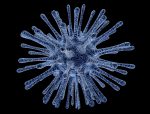This is one of three articles on dealing with the Coronavirus and its impact. This blog looks at how associations can protect the association as well as responsibilities. See also The Coronavirus, Flu, and HOA/Condo Association Meetings and “Let’s Have Our Meeting or Convention Online!”

Since our blog last week on The Coronavirus, Flu, and HOA/Condo Association Meetings, there has been an increase in U.S. Coronavirus cases, including one death in Washington state. That has led to a number of questions from association boards to the effect of: “Thanks for the blog, but what should we DO to protect the association and its members? And what is our responsibility for the [clubhouse], [pool], [workout area], [playground], [plumbing], [HVAC system]?”
Association boards should be vigilant. However, there are limits on what a community association can do to fight illnesses, including the Coronavirus. While the Coronavirus should be taken seriously, there’s much that isn’t yet known about the virus. For instance, there were early theories that the virus might have been transmitted in cruise ships and apartment buildings through HVAC circulation or plumbing systems, but nothing has been proven. Several recent US cases do not seem to have a clear origin, leaving us with no clear direction on prevention methods. We hope that there will soon be better guidance from professionals on the disease and how it is transmitted.
As with the flu (which has killed many more in the US than Coronavirus, but has a lower mortality rate), an association can certainly provide general, useful tips to owners for staying well and protecting themselves. (This is little different than giving out other information of concern to the community, like warnings of theft around the holidays.) Any such information should be reasoned and researched, such as:
Almost certainly the Community Associations Institute will also soon be providing guidance on how community associations can best deal with the Coronavirus.
From a legal perspective, responsibilities in a community association will likely fall on familiar lines of ownership—the association controls the association’s common areas, and lot/unit owners are responsible for their private property. With that as a starting point, the association will likely have the following obligations if the Coronavirus, stomach bug, or other illness becomes widespread:
- More extensive cleaning, disinfecting, or wiping down of common areas and common area surfaces.
- Community events on the common areas, whether a membership meeting or educational event, may need to be postponed or cancelled.
- Public common areas, such as gyms, clubhouses, and pools, may need to be temporarily closed.
- The association may wish to consider the installation of hand sanitizer dispensers or wipes on the common area for owner and guest use.
- Depending on the course of the virus and as more information becomes available on how it is spread, the association may wish to discuss with facilities professionals whether any changes are necessary to equipment serving the common area or over which the association has control, such as the plumbing or HVAC systems in the clubhouse (or possibly the entire building in a high-rise condo). Recognize that any such upgrades could be prohibitively expensive and, at present, there is nothing to suggest this would help stem the spread of Caronavirus.
If any illness becomes prevalent in an association, the association should discuss with its professionals how best to handle the specific situation. As noted above, that talk will certainly have to consider the usual what-does-the-association-have-responsibility-over versus what-does-the-unit-owner-have-responsibility-over issue. At the end of the day, owners will likely be most responsible for their own health and safety. That’s because most all of the tips to prevent illness recommended by the Centers for Disease Control and Prevention (CDC) are an individual responsibility:
- Avoid close contact with people who are sick.
- Avoid touching your eyes, nose, and mouth.
- Stay in when you are sick.
- Cover your cough or sneeze with a tissue, then throw the tissue in the trash.
- Clean and disinfect frequently touched objects and surfaces using a regular household cleaning spray or wipe.
- Follow CDC’s recommendations for using a facemask.
- Wash hands often with soap and water for at least 20 seconds, especially after going to the bathroom; before eating; and after blowing your nose, coughing, or sneezing.
- If soap and water are not readily available, use an alcohol-based hand sanitizer with at least 60% alcohol. Always wash hands with soap and water if hands are visibly dirty.
The association should take such steps on the common areas and require any association employee to follow these guidelines.
While the primary concern of this article is to keep association members healthy, we’re often asked as attorneys about the liability of the association for the spread of illness. No matter what preventative steps are taken, someone could become ill. Even so, the likelihood of the association being liable is very small. That’s due in part to the difficulty in proving the cause of any specific illness. In January I came down with the flu, but it’s impossible to know if it was from contact with a friend, a family member, or the elevator button at my office.
For now, our general message is that directors should consider possible future steps, but to approach this reasonably and calmly, as with any crisis. Perhaps notify owners that the association is monitoring the situation and, by the way, here are some tips on things owners can do to avoid illness. As necessary, the association board should discuss developments with its community association professionals and take such precautions as are warranted in its best business judgment.
For advice on North Carolina or South Carolina HOA/condo issues,
contact one of the community association attorneys at any of our four offices.
.

